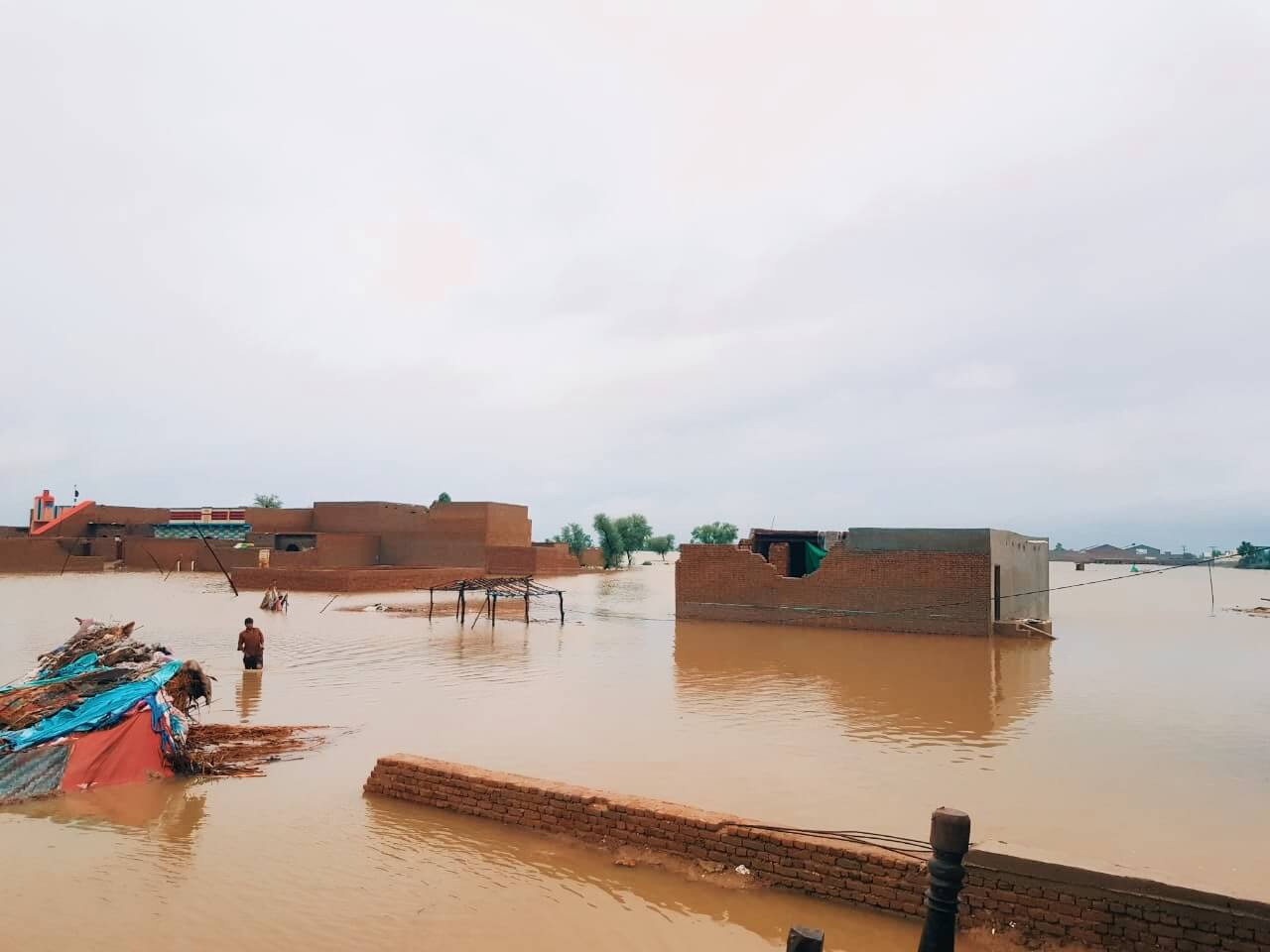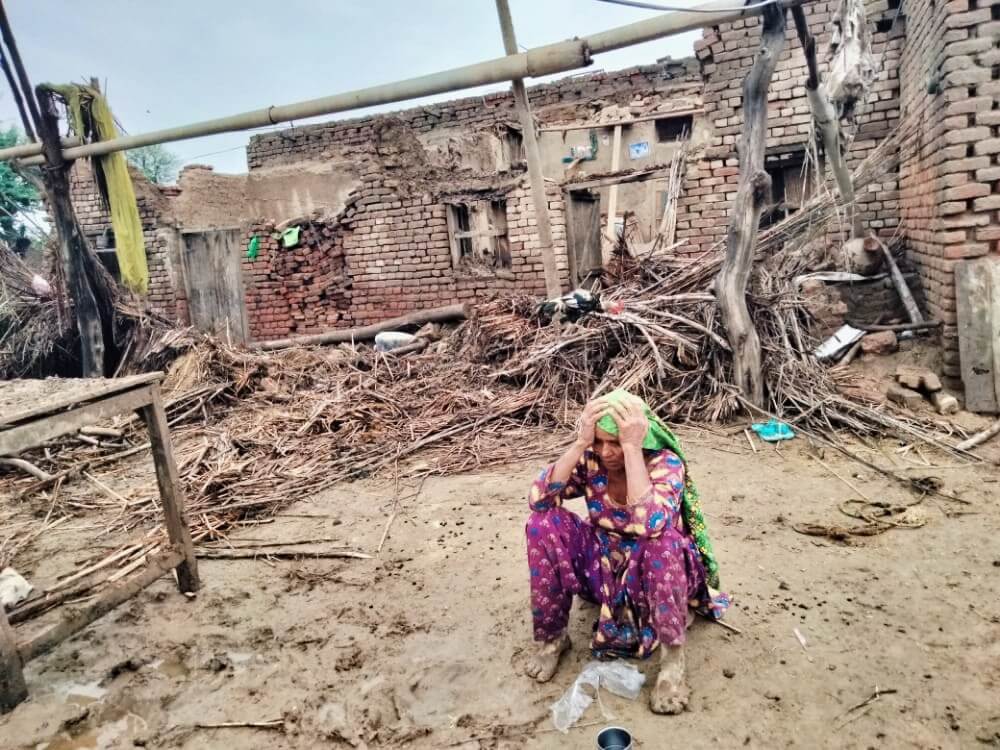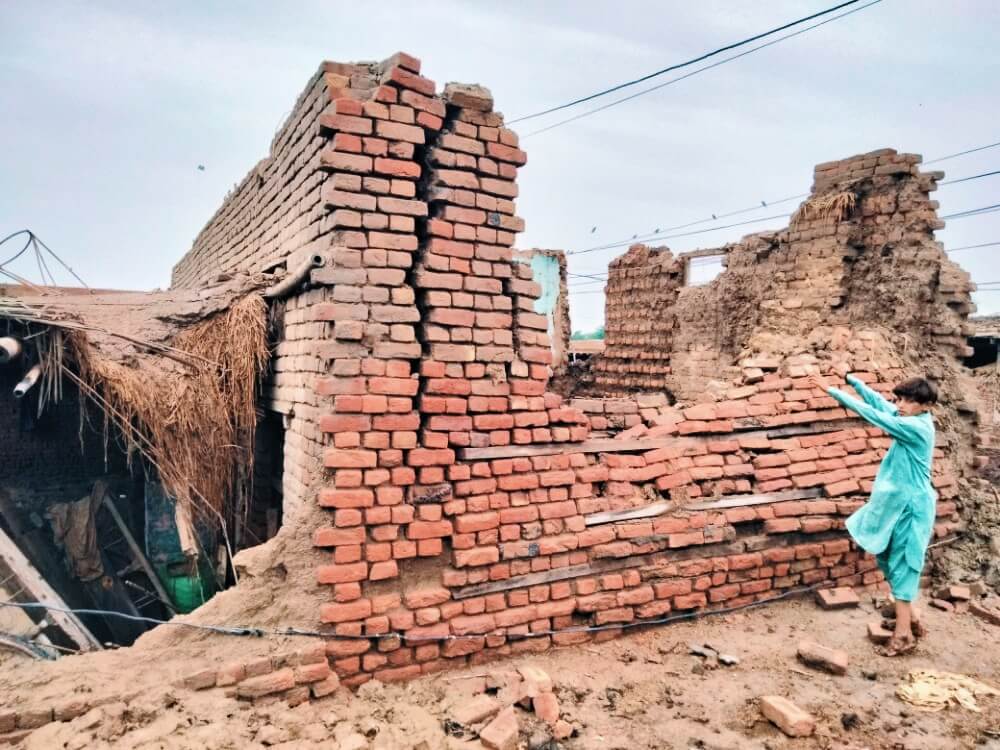Since June 2022, torrential rains have hit Pakistan due to an extreme monsoon season and melting glaciers, causing devastating floods which have killed over 1,500 people so far, of which more than 399 were children. These erratic and dangerous weather patterns were exacerbated as a result of climate change, with glaciers melting at an accelerated rate due to a severe heat wave, which led to a large amount of freshwater from the mountains moving into other areas of Pakistan. So far, the Sindh and Balochistan provinces in South Pakistan have received 784% and 500% more rain than the usual August average (Reuters, 2022). Even before these floods, Pakistan has disproportionately suffered from the climate crisis, according to researchers and aid groups. Last year, the country was ranked the eighth most affected nation by climate change from 2000 to 2019, in the Global Climate Risk Index, even though Pakistan is responsible for only 1% of the world’s carbon footprint (CNN, 2022).

Situation Report:
One third of Pakistan is now underwater, according to the country’s Minister of Climate Change. Initially south-western parts of the country were affected the most, however the floods have now spread across much of the rest of the country, including KPK and Punjab in the north-west. With 33 million people affected, and damage exceeding that which was caused by the devastating 2005 earthquake and 2010 floods, an emergency response is critical to ensure as many lives as possible are saved. According to a variety of different data and evidence, 3600km of roads, 356 communication bridges, 1142 shops and 2 million homes have been partially affected or completely destroyed by the floods so far.
‘The world’s deadliest flood since the 2017 South Asian Floods’.
Right now, access to food, clean drinking water and shelter is limited for hundreds of thousands of Pakistanis, whilst relief efforts are being hampered due to destruction of roads and access routes, especially in mountainous areas. Moreover, the lack of hygiene facilities and clean drinking water has exacerbated the risk of diseases spreading in flooded areas - there has already been a major increase in cases of diarrhoea, skin infections, malaria, dengue and other illnesses that are all deadly if left untreated.

Our Emergency Response:
Doctors Worldwide UK has been in Pakistan for the past 1.5 weeks working and coordinating with its partners to explore the most effective, targeted and needs-based response for the floods. In order to ensure that aid reaches everyone and not only those visible ‘on the roadside’ (which often causes aid to be poorly distributed or only reaching the same people), a widespread coordinated approach has been mounted by local Pakistani NGOs along with the Army, UN and others.
What we are doing NOW & Where:
- Supporting the set up of 80 field medical camps across 10 districts to provide urgent healthcare needs with a focus on specialist medical camps/temporary clinics for mothers, babies and children
- Distribution of Safe Birthing Kits to pregnant mothers - at least 73,000 Pakistani mothers are due to give birth during each month of the disaster
- Supporting the distribution and management of $1m worth of donated medication
- Providing urgent preventative relief focusing on
- Women dignity kits
- Nutrition & vitamins for lactating mothers and babies to prevent malnutrition and micronutrient deficiencies
- Water purification tablets for clean water
- Non-food items such as jerry cans to store clean water
- Supporting the highly important need for the continuation of childhood vaccine programmes to help prevent outbreaks such as measles which kill under 5s rapidly
- Organising an urgent online training on medical flood response for Pakistani doctors responding to the flood crisis with experts locally and internationally
- Speaking with Government health institutions to understand the impact of the floods on health facilities as part of DWW rehabilitation programme during post-flood recovery
What we will do over the next 12 weeks:
- Identify, rebuild and fortify clinics to withstand future floods and provide shelter
- Assess health impacts and provide technical expertise and capacity building for reduction and resilience building for local response
Support our work today to ensure that those affected by the floods receive the care and support they need. Your donations will be vital in changing and saving lives.
To support our medical response activities in Pakistan, donate here.
To keep up to date with our projects, make sure to share this article with your friends and family, follow us on social media (twitter, facebook, instagram, linkedin, tiktok) and subscribe to our mailing list for regular updates and opportunities.


